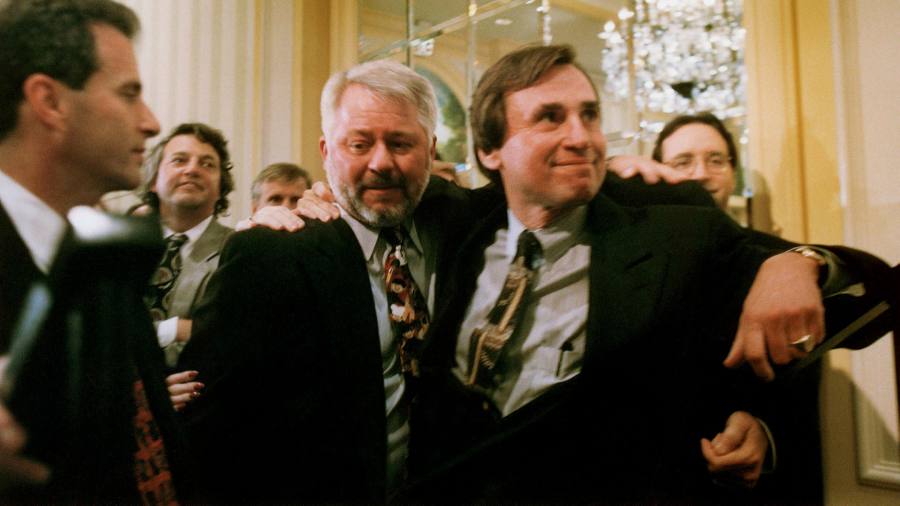[ad_1]
The writer is the author of ‘Wilful Blindness: Why We Ignore the Obvious at our Peril’
Last week, when Extinction Rebellion targeted LinkedIn, it wasn’t trying to bring the organisation to its knees. It wanted to connect with potential whistleblowers inside Shell, Exxon, HSBC and the UK’s HS2 high-speed railway. LinkedIn ads targeted those companies’ employees, alerting them to a secure “truth telling†platform to report greenwashing. On the same weekend calling cards were delivered to smart London neighbourhoods, encouraging readers to blow the whistle wherever climate change wasn’t being addressed seriously.
The activist group had tapped into the zeitgeist. Last year, whistleblower cases asserting unprofessional standards in financial services rose by 35 per cent. Deloitte has warned of a new “whistleblower environment†in the pandemic that it attributes to greater workplace health concerns, record unemployment and the compliance problems of staff working from home. (At the same time, Deloitte faced its own whistleblower, who has alleged audit faults in the company’s Beijing office.) Problems at Rio Tinto and at Boeing have also been prompted or exacerbated by information leaked by insiders.
Deloitte has recommended heightened vigilance and compliance. Yet that might not be the way to stop whistleblowers. Leaking confidential information is not something employees do easily, or because they want to. They usually do so when they have tried to draw attention to concerns and been ignored.
While the popular image of the whistleblower is typically an eccentric loner, the truth is more prosaic: whistleblowers are likely to be loyal employees, passionate about high standards, who go outside their organisation as a last resort when nobody takes them seriously. They aren’t defiant troublemakers; they’re disappointed believers.
There’s often an asymmetry in the portrayal of such cases. Tragic endings make more memorable stories than those where problems get fixed. Many remember Joe Darby whose career was ruined when Donald Rumsfeld revealed who had alerted the military to the cruelty at Abu Ghraib. Or Jeffrey Wigand, a chemist who claimed his life was threatened when he leaked documents about tobacco tampering. Or Steve Bolsin, who said he was virtually driven out of the UK after blowing the whistle on surgeons at a paediatric cardiac surgery. These are dramatic stories where the mighty institution tramples over the lone seeker after truth.
What we don’t read about are the cases where concerns and issues are raised, often repeatedly, and resolved. Yet this happens every day. I remember one engineer, uncomfortable with the specifications of a new medical advice, who consulted with colleagues and at the next design meeting asked: was everyone confident the device was safe? The simple question provoked an uneasy silence that catalysed change.
I still think about a senior corporate executive so distraught by the sexual predation of a colleague that he decided to quit. Instead, we explored how to raise the issue safely. His reward for doing so was a promotion, and the predator’s exit. Better still, the whole company watched what happened and began to believe change was possible.
The tragic legacy of the whistleblower myth is that it silences people we most need to hear. In any company, many employees have issues and concerns they don’t voice. Why are they silent? Often it is because of fear of punishment or the perceived futility of speaking out. That silence represents a huge waste of knowledge.
By contrast, companies where people can speak up are organisations where every employee is an early warning system, where improvement and change are normal.
Companies would do better to listen to whistleblowers than try to shut them up. Telling the truth shouldn’t be an exceptional act of courage. Rather than more enforcement, a better investment is to teach worried executives how to speak up constructively, and bosses how to listen with an open mind. One banking executive, on hearing of XR’s truth-telling platform, gleaned this at once. “That’s great,†he told me. “Now maybe they will make better decisions!â€
Companies targeted by Extinction Rebellion via LinkedIn and other means, or those alarmed by Deloitte’s warning, might rush to tighten up their processes. They would do better to see their workforce as a source of insight and moral compass. When individuals can speak up and be taken seriously, they help companies stay in touch with the society they serve. They then have little to fear from whistleblowers.
[ad_2]
Source link






